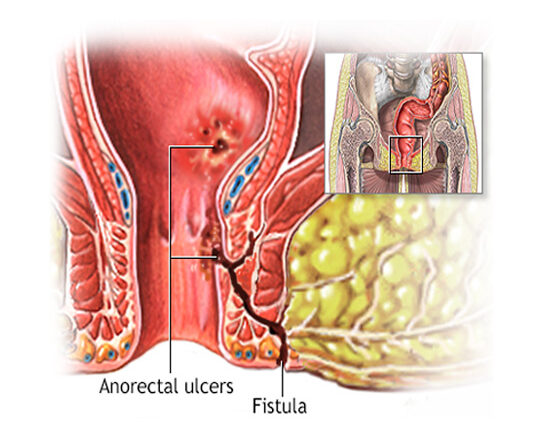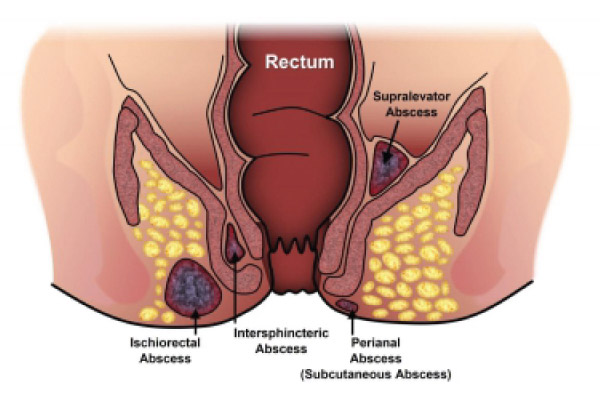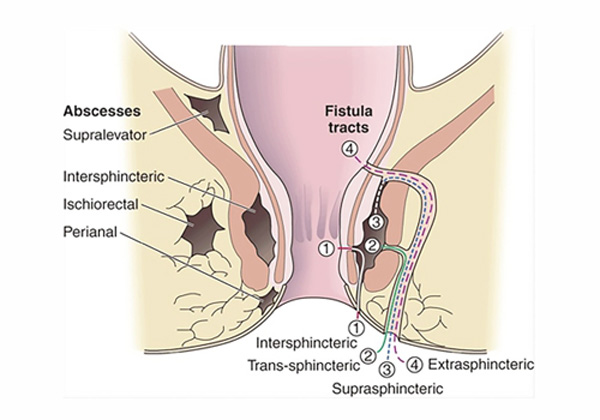"Innovative Care,
Personal Touch
Make an Appointment
The most advanced laser,stapler and other minimal invasive treatment in pile,fissure,Fistula
Opening Hours
Sunday - Friday
09.00 - 07.00
Saturday
Closed
Pharmacy Available

What is Fistula?
What are the most common symptoms of fistula?
- Pain, redness and swelling around your anus
- Fever and chills
- Severe fatigue
- Discomfort while sitting
- Pricking throughout the anal region
- Painful bowel movements
- Crack or hole of fistula on the skin

Treating Fistula at Bandal Hospital
At Bandal Hospital, we have the best proctologist who are expert at using the latest technology to treat fistula with extreme precision. The doctors determine the depth of the fistula to understand the severity of the situation. In this treatment, the doctor inserts the radial fibre into the fistula tract which emits laser energy to dissolve the infect tissue. It also prevents the relapse of the infection.
Causes of Fistulal
- Irritable bowel syndrome
- Diverticulitis
- Ulcerative colitis
- Crohn’s disease
- Growth of painful ulcers
- Past medical complications
Diagnosing Fistula
At Bandal Hospital, we have many methods to detect and diagnose the fistula :
- Fistula Probe: A long thin probe guided through the outer openings of fistula. A special dye may be injected to find out where the fistula opens up on the inside.
- Anoscope: Special scope to look inside your anal canal
- Imaging studies: Including ultrasound (image of anal canal using sound waves) or MRI.
Types of fistula?
Apart from the common types of fistula – Anal and Urinary tract, there are many more types of fistula depending on the organs they affect:
- Subcutaneous / Superficial
- Intersphincteric fistula
- Transphincteric fistula
- Suprasphincteric fistula
- Extrasphincteric fistula

What are the precautions I should take before and after the procedure?
Before the surgery, perform the following actions:
Use the prescribed lotions or creams.
Consume healthy fibre-rich diet.
Increase the fluid intake to regulate the bowel movements.
Do not apply too much force while passing stool.
After the surgery, perform the following actions:
Follow all of the doctor’s instructions.
Carry out the instructions.
Use Sitz bath after bowel discharge.
Use soft tissues or wipes.
Consume healthy fibre-rich diet.
Things you should know about Fistula
- Irritable bowel syndrome
- Diverticulitis
- Ulcerative colitis
- Crohn’s disease
- Growth of painful ulcers
- Past medical complications
Apart from the common types of fistula – Anal and Urinary tract, there are many more types of fistula depending on the organs they affect:
- Intersphincteric fistula
- Transphincteric fistula
- Suprasphincteric fistula
- Extrasphincteric fistula
Before the surgery, perform the following actions:
- Use the prescribed lotions or creams
- Consume healthy fibre-rich diet
- Increase the fluid intake to regulate the bowel movements
- Do not apply too much force while passing stool
After the surgery, perform the following actions:
- Follow all of the doctor’s instructions
- Carry out the instructions
- Use Sitz bath after bowel discharge
- Use soft tissues or wipes
- Consume healthy fibre-rich diet
If you need urgent care, simply call our 24 hour emergency hotline.
Your dedicated case manager ensures your optimal care.
Call Now
